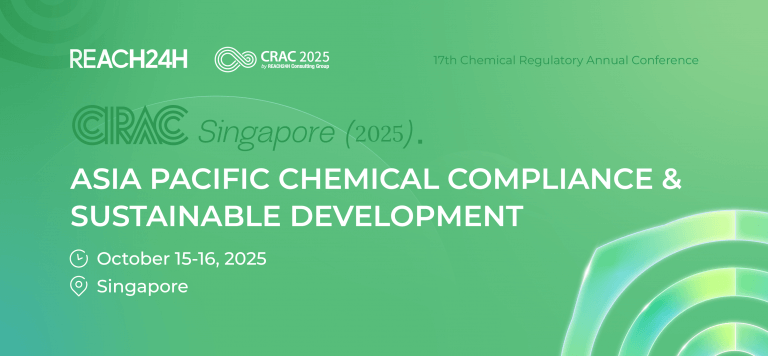The Canadian Environmental Protection Act (CEPA) is a core part of Canada's federal environmental legislation. It was first promulgated in 1988 and revised in 1999 (CEPA 1999). This act aims to protect environmental and human health and achieve sustainable development. CEPA is regulated by the Environment and Climate Change Canada (ECCC) and Health Canada (HC). Environment Canada is a law enforcement agency. Environment and Climate Change Canada have oversight over a wide-breadth of areas ultimately targeted at pollution prevention. CEPA 1999 regulates everything from hazardous waste to fuels as well as both new and existing substances. New chemical substances are regulated under CEPA 1999 according to the New Substances Notification Regulation (Chemicals and Polymers), NSNR. All companies manufacturing or importing products that contain a new substance (chemical/biochemical or polymer/biopolymer) must first comply with the requirements outlined in the NSNR. New chemical substances are defined under Canadian regulations as those substances not included on the Domestic Substances List (DSL).
NSNR Regulatory Scope
New manufactured/imported chemicals
Polymers (reduced reporting requirement for low concern polymers)
Cosmetic ingredients (if not listed on the In Commerce List)
Pharmaceutical active ingredients
Natural health products
Novel foods
Pharmaceutical excipients
Biologics
Food additives
Personal care products
Veterinary drug active ingredients
Veterinary drug excipients
Medical devices
Food packaging
Enzymes
NOT REGULATED BY NSNR: the chemical substances listed in schedule 2 of CEPA 1999
Pest Control Products
Fertilizers
Feeds
NSNR Related Inventories
Environment and Climate Change Canada has established two inventories. The Domestic Substance List (DSL) is the first, an inventory consisting of about 23,000 substances. The DSL is the sole standard according to which a substance can be deemed as “new” to Canada. With few exceptions, all substances not on this list are considered to be new and must be notified to ECCC prior to their import or manufacturing to assess whether they are toxic or can become toxic to the environment or human health. The second inventory is the Non-Domestic Substance List (NDSL), which contains about 58,000 substances, which list is updated annually. Substances listed on the NDSL are subject to notification but with reduced information requirements.
Subjects of Declaration
The subject of NSNR declaration refers to any enterprise or individual that produces or imports new substances into Canada, including 1) Canadian manufacturers; 2) importers; 3) Canadian non-resident importers (NRI), which require a Canadian agent. For NRI, they can also participate in the declaration process as Foreign Suppliers. A Technical contact can be appointed to assist Foreign Suppliers when submitting the materials, and to help communicate with the Canadian authorities.
NSNR Filing Type
NSNR has different data requirements based on substance types, uses, usage scenarios, and import/production levels., A new substance declaration is also required when the low-focus polymer (RRR) production/import volume reaches 1 tonne/year.
Data and Test Requirements
The data required by the regulation is recommended to be carried out in accordance with OECD Test Guidelines. The following test points should be carried out by an OECD GLP laboratory:
Acute Mammalian Toxicity Tests
Repeated-Dose Mammalian Toxicity Tests
Genotoxicity Tests
Tests to Assess Skin Irritation
Skin Sensitization Tests
Ecotoxicity Tests
Biodegradation Tests
Official Review of New Substances
First category: there is no suspicion that the application is "toxic", the company can carry out activities after the review period;
Second category: the new substance is not suspected of being "toxic" based on the declared purpose, but it needs to be reassessed under other circumstances based on Significant New Activity Notice (SNAN);
Third category: the new substance is suspected of being "toxic", 3 types of control measures will be proposed
Producers and importers are allowed to carry out activities under specific conditions, such as restricting the amount and the usage of substances;
Production and importers are prohibited from carrying out activities for a period of 2 years;
Enterprises are required to provide additional supplement information, enterprises cannot carry out activities until the required information is completed.
Our Services
DSL directory and NDSL directory query
Comprehensive analysis of Canadian CEPA compliance response strategies
New substance declaration services - Technical support
Test Supervision
Other technical support






